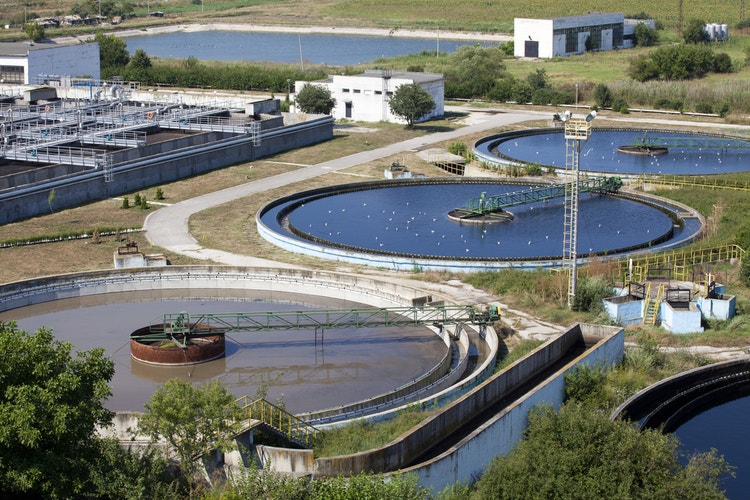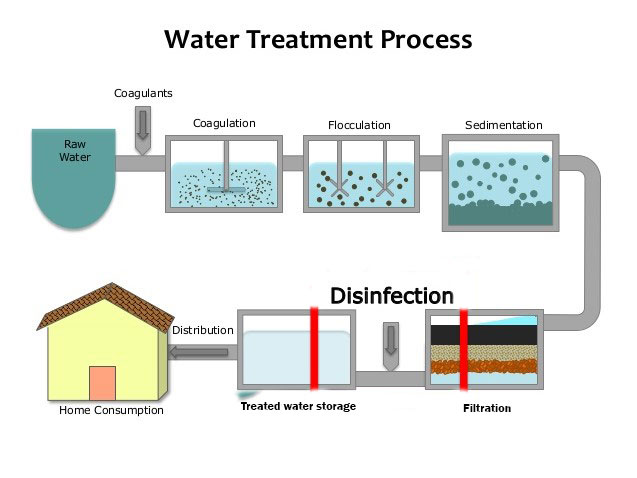What Are the Types of Water Technology Startups Transforming the Industry?
The water Technology market is experiencing significant makeover via a range of ingenious start-ups. These business are introducing clever water monitoring solutions and progressed purification systems, amongst various other technologies. They attend to vital issues such as water scarcity, quality, and effectiveness. As these innovations develop, they lead the means for lasting techniques. Nonetheless, the landscape is intricate, questioning concerning one of the most impactful innovations and their long-term ramifications.
Smart Water Administration Solutions
Smart water management options stand for a transformative strategy to optimizing water usage and distribution. These options utilize Technology to enhance performance, lower waste, and boost source appropriation. Start-ups in this field use numerous devices, including IoT tools, real-time surveillance systems, and information analytics, to enable markets and municipalities to track water intake much more accurately. By making use of advanced formulas, these innovations can predict demand patterns and determine prospective leakages, promoting positive maintenance.

Advanced Filtering and Filtration Technologies
As water top quality problems grow, advanced filtration and filtration technologies have become essential options for making certain tidy and risk-free water supplies. These advancements leverage advanced materials and approaches to properly get rid of pollutants, consisting of microorganisms, heavy metals, and microplastics. Startups in this market are creating systems that make use of nanotechnology, membrane layer filtering, and ultraviolet light treatment, enhancing efficiency and efficiency in water purification processes.
These technologies can be tailored for different applications, from community water treatment facilities to specific household systems, dealing with the diverse needs of industries and customers. Several business concentrate on energy-efficient options, thereby decreasing the ecological impact of water treatment. The increase of clever filtration systems, which integrate sensing units and information analytics, enables real-time surveillance and management of water quality. In general, these sophisticated technologies play a significant function in safeguarding public wellness and protecting valuable water sources.
Lasting Desalination Methods
Lasting desalination approaches are obtaining focus as feasible services to water scarcity. By integrating sustainable power sources and utilizing cutting-edge filtration innovations, these approaches intend to reduce environmental impacts while enhancing effectiveness. Exploring these improvements reveals significant possibility for transforming seawater right into a sustainable freshwater source.
Renewable Resource Assimilation
While the worldwide need for freshwater continues to increase, innovative start-ups are checking out renewable resource integration to improve lasting desalination techniques. These business are taking advantage of solar, wind, and various other eco-friendly energy resources to power desalination procedures, greatly decreasing reliance on nonrenewable fuel sources. By utilizing sustainable power, startups aim to make desalination a lot more eco-friendly and economically feasible. In addition, some are developing crossbreed systems that combine standard desalination technologies with sustainable power solutions, enhancing performance and decreasing carbon impacts. These improvements not only address water scarcity but likewise add to a much more lasting power landscape, showcasing the potential synergy in between water Technology and eco-friendly power. As these start-ups expand, they play a vital role fit the future of sustainable water administration.
Cutting-edge Purification Technologies
Cutting-edge purification technologies are emerging as a crucial element in the quest for lasting desalination methods. These advancements concentrate on improving efficiency and reducing energy consumption in the desalination process. Startups are developing unique membrane layers that considerably boost salt denial rates while reducing fouling, which typically hinders performance. Methods such as onward osmosis and bio-inspired filtration systems are obtaining traction, offering eco-friendly options to standard methods. Furthermore, incorporating nanotechnology into filtration products enhances their performance, enabling lower functional costs. The drive in the direction of sustainability is also motivating research study into crossbreed systems that incorporate numerous filtering techniques, thus optimizing water quality and resource recovery. As these modern technologies evolve, they guarantee to change water therapy and accessibility worldwide.
Water Quality Monitoring and Analytics
Water high quality tracking and analytics are progressively driven by innovative sensing unit modern technologies that give crucial understandings into water safety. These developments allow real-time information evaluation, enabling immediate actions to prospective contamination. Additionally, the application of predictive analytics improves the capacity to anticipate water high quality patterns, ultimately improving public health and wellness and source management.

Ingenious Sensing Unit Technologies
As the need for safe and clean water heightens, sensor modern technologies for checking water high quality have actually become vital tools in resolving this difficulty. These innovative sensing units are created to detect a large range of pollutants, consisting of heavy metals, germs, and chemicals, providing real-time information on water purity. The integration of innovative products and miniaturized components has led to extremely delicate gadgets that can operate in diverse settings, from city systems to remote water sources. In addition, numerous startups focus on creating IoT-enabled sensing units that facilitate remote surveillance, enabling aggressive monitoring of water sources. By improving the precision and access of water high quality data, these modern technologies play a crucial duty in making sure public health and environmental sustainability.
Real-Time Information Evaluation
Developments in sensing unit modern technologies have actually led the means for sophisticated real-time data evaluation systems in water quality tracking (Water Technology Startups). These systems allow continuous analysis of different water quality criteria, such as contaminant, ph, and turbidity levels, giving immediate insights right into water conditions. Start-ups in this field utilize cloud computing and device discovering formulas to refine huge amounts of data successfully. This real-time evaluation permits swift discovery of anomalies and prospective dangers, making certain prompt feedbacks to water top quality issues. Furthermore, easy to use control panels present data aesthetically, making it available to stakeholders, consisting of towns and environmental companies. As a result, these developments promote improved decision-making and proactive management of water resources, advertising public health and wellness and environmental sustainability
Anticipating Analytics Applications
While real-time data analysis offers immediate understandings right into water high quality, predictive analytics applications take a positive approach by anticipating possible problems prior to they develop. These applications use historic information and sophisticated formulas to determine fads and patterns in water high quality metrics, permitting for very early intervention. Startups in this market take advantage of artificial intelligence and big information analytics to predict contamination occasions or tools failures, allowing water monitoring discover this companies to assign resources better. In addition, predictive analytics can improve governing conformity by anticipating high quality concerns that may lead to infractions. By applying these innovations, organizations can markedly boost their feedback times, reduce functional expenses, and inevitably ensure more secure water for areas. This forward-thinking method is vital for modern-day water management methods.
Drip Detection and Infrastructure Monitoring
Effective leak discovery and framework management are vital for maintaining the stability of water supply, particularly as aging infrastructure comes to be extra widespread. Start-ups in this field are leveraging advanced innovations such as acoustic sensing units, satellite imagery, and expert system to recognize leaks quickly and precisely. By making use of real-time data, these services aid energies keep an eye on pipeline problems and maximize maintenance timetables.
Cutting-edge start-ups are additionally establishing predictive analytics tools that evaluate historic data to anticipate prospective failures, enabling for aggressive framework management. On top of that, combination with geographical info systems (GIS) boosts the visualization of water distribution networks, helping with far better decision-making.
These technologies not just lessen water loss however additionally lower operational costs and boost service dependability. As the need for efficient water Full Article administration expands, leakage discovery and framework management startups are becoming vital gamers in ensuring sustainable water supply for the future.
Rainwater Harvesting and Reuse Systems
Rainwater harvesting and reuse systems have emerged as innovative services to deal with water deficiency and advertise lasting resource administration. These systems capture, shop, and make use of rain for various applications, considerably lowering reliance on conventional water resources. By collecting rain from rooftops or other surface areas, these innovations enable companies and communities to use an or else thrown away resource.
Startups in this sector concentrate on establishing reliable collection systems, filtration methods, and storage space services that maximize water quality and usability. Advanced monitoring modern technologies are additionally included to guarantee peak system efficiency and maintenance. Furthermore, assimilation with smart home systems enables real-time monitoring and reliable water use.
These initiatives not just add to water preservation yet also lower energy costs for users. As recognition of ecological obstacles grows, rainwater harvesting and reuse systems stand out as sensible, lasting services efficient in changing water administration practices across various areas.
Agricultural Water Effectiveness Innovations
As global demand for food proceeds to climb, farming water effectiveness technologies have actually become important in guaranteeing sustainable farming techniques. Start-ups are leveraging Technology to create options that maximize water usage in agriculture. Advanced watering systems, such as drip and precision watering, allow farmers to provide water directly to plant origins, lessening waste. In addition, soil wetness sensors and climate analytics devices help farmers check problems in real-time, enabling them to irrigate just when necessary.
The assimilation of artificial intelligence and device understanding improves decision-making, enabling for much more reliable water management strategies. These technologies not just enhance plant returns however also minimize water consumption, which is critical in water-scarce regions. By adopting these modern technologies, agricultural stakeholders can add to a much more sustainable food system, dealing with both environmental problems and the expanding worldwide population's needs. The future of agriculture hinges on these water efficiency innovations, marking an important shift in farming techniques.
Frequently Asked Concerns
How Do Water Technology Startups Secure Financing for Their Innovations?
Water Technology startups secure funding through different channels, including equity capital, government grants, crowdfunding systems, and partnerships with established firms. These methods enable them to innovate and scale their services to deal with pushing water difficulties.
What Challenges Do Startups Face in the Water Technology Sector?
Startups in the water Technology industry face countless difficulties, including regulative hurdles, high funding requirements, competitors from established companies, technological intricacy, and the requirement for public understanding and acceptance of innovative solutions in water administration.
Just How Can Consumers Gain From Water Technology Innovations?
Customers can take advantage of water Technology advancements via improved water high quality, enhanced availability, cost financial savings, and raised preservation efforts. These advancements cause much healthier communities, sustainable techniques, and greater resilience versus water shortage and environmental difficulties.
What Duty Do Government Rules Play in Water Technology Startups?
Government policies substantially affect water Technology start-ups by establishing conformity standards, incentivizing innovation with gives and subsidies, and forming market entry strategies. These guidelines can either cultivate development or impose obstacles depending upon their complexity and enforcement.
Just How Do Start-ups Determine the Effect of Their Technologies on Water Conservation?
Startups gauge the impact of their technologies on water preservation via metrics such as water financial savings, efficiency improvements, customer fostering prices, and ecological benefits, typically making use of data analytics and pilot tasks to verify their efficiency. (Water Technology Startups)
The rise of smart water management solutions mirrors a growing acknowledgment of the need for sustainable water methods, eventually contributing to the strength of water systems worldwide. As water top quality concerns grow, advanced purification and filtration technologies have actually arised as vital services for making certain risk-free and clean water products. These improvements not only address water deficiency but likewise contribute to a more lasting energy landscape, showcasing the prospective Read Full Report synergy between water Technology and sustainable energy. As the need for safe and tidy water heightens, sensing unit technologies for monitoring water quality have actually emerged as essential devices in addressing this obstacle. Customers can benefit from water Technology developments through improved water quality, enhanced ease of access, price financial savings, and increased conservation initiatives.